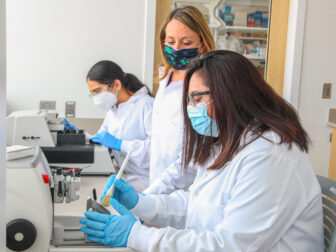Shijie Cao, PhD

Development of Microbiota-Mimicking Nanocarriers for Modulation of Neuroinflammation via the Gut-Brain Axis
Abstract
Gut microbiome dysbiosis is linked to various inflammatory, metabolic, and autoimmune disorders. Microbial metabolites, such as short-chain fatty acids (SCFAs), act as key mediators between the microbiome and various organ systems. This proposal aims to develop a next-generation platform for combined SCFA delivery, referred to as “microbiota-mimicking nanocarriers”, to overcome existing dosing challenges such as rapid metabolism, foul odor/taste, as well as short retention time and consequently high dosage requirement. By slowly releasing the SCFAs through enzymatic or bacterial digestion in the distal gut, this approach seeks to achieve long-lasting microbiome and immune modulatory effects and may have a significant impact on the treatment of conditions like neuroinflammation, via testing using murine models. Successful development and assessment of this platform could lay the groundwork for new treatment approaches and enhance our comprehension of the microbiome-gut-brain axis.
The Faculty Starter Grant from the PhRMA Foundation is crucial for establishing our presence in the field of drug delivery. It provides enormous support for our work in developing engineering tools to harness the potential benefits of the microbiome, especially at this very early stage.

